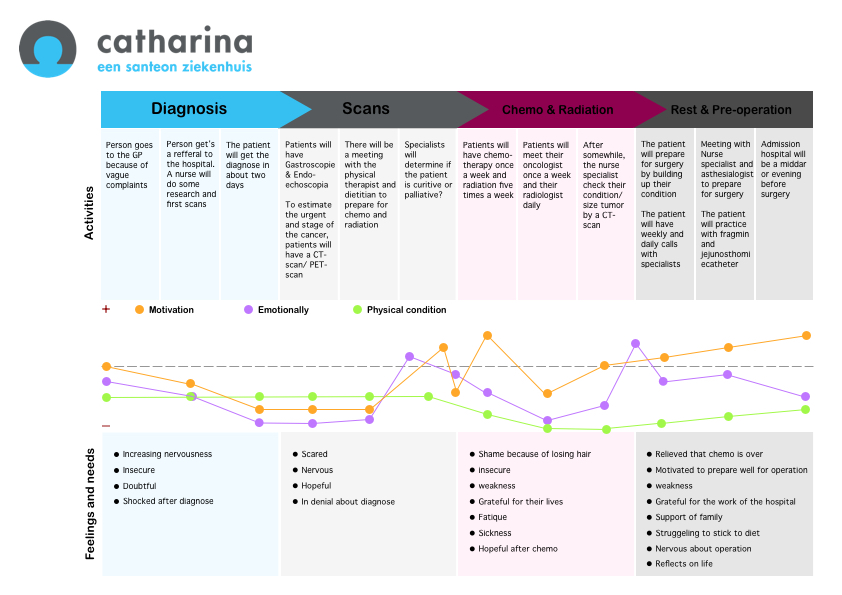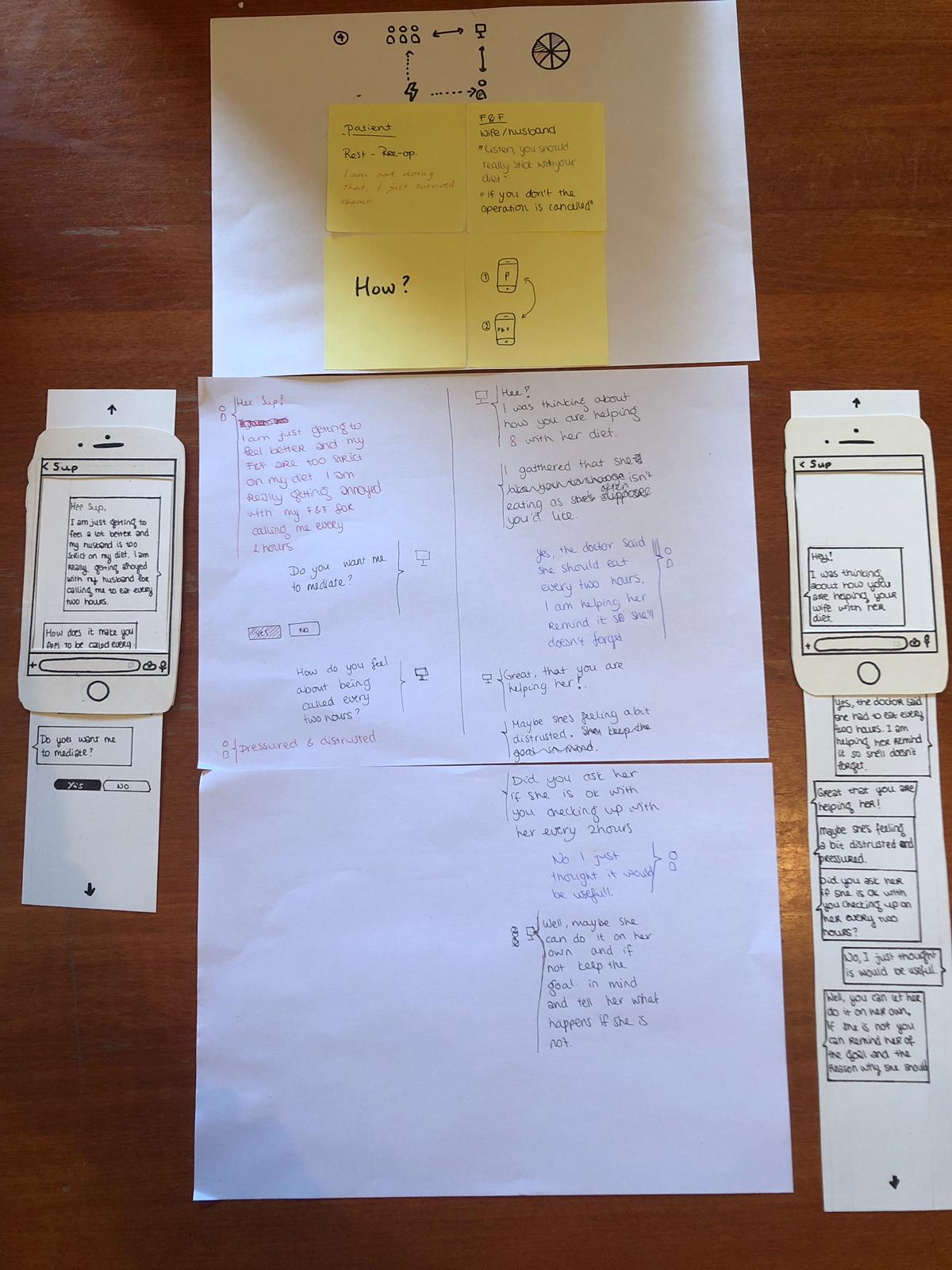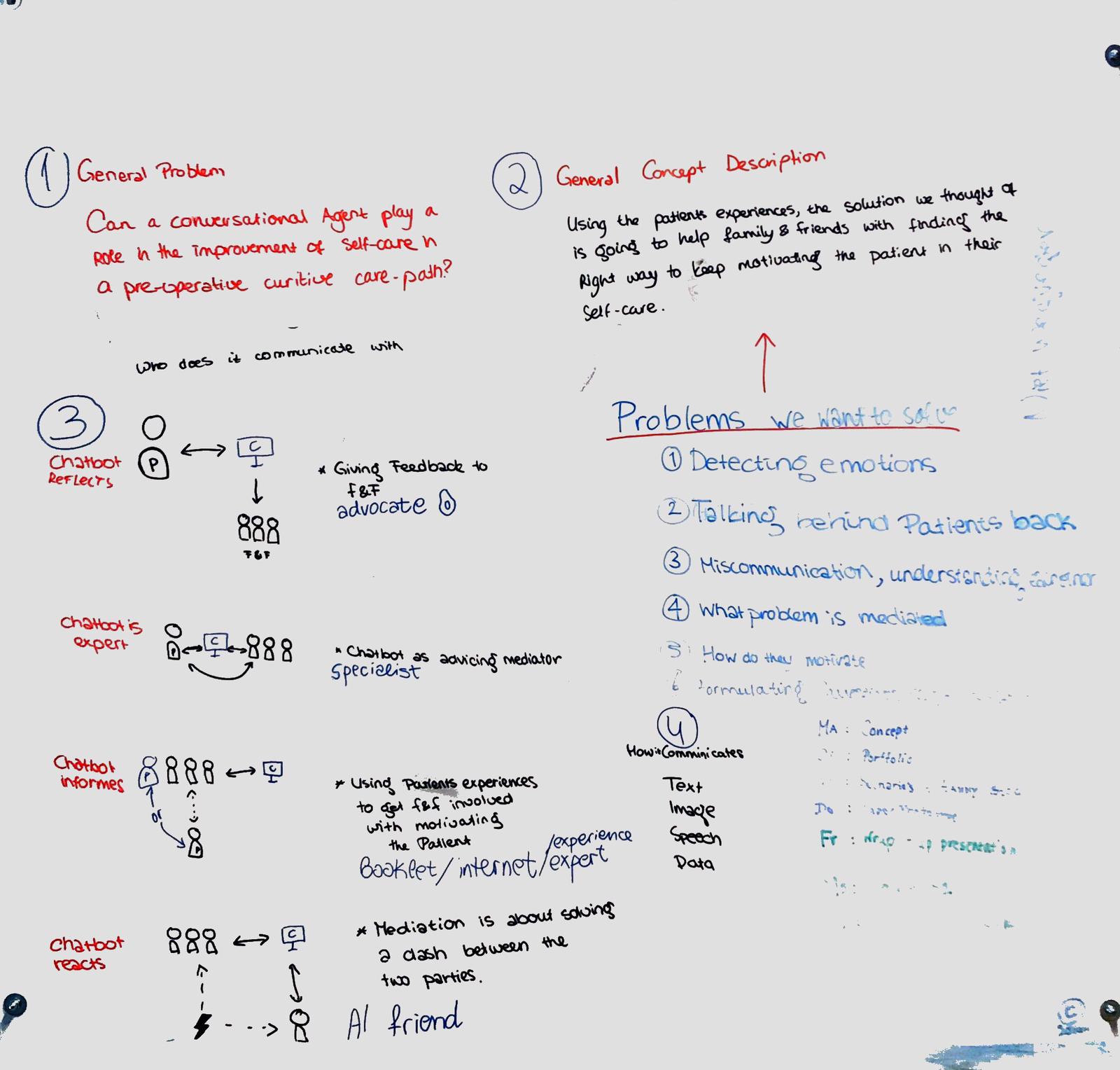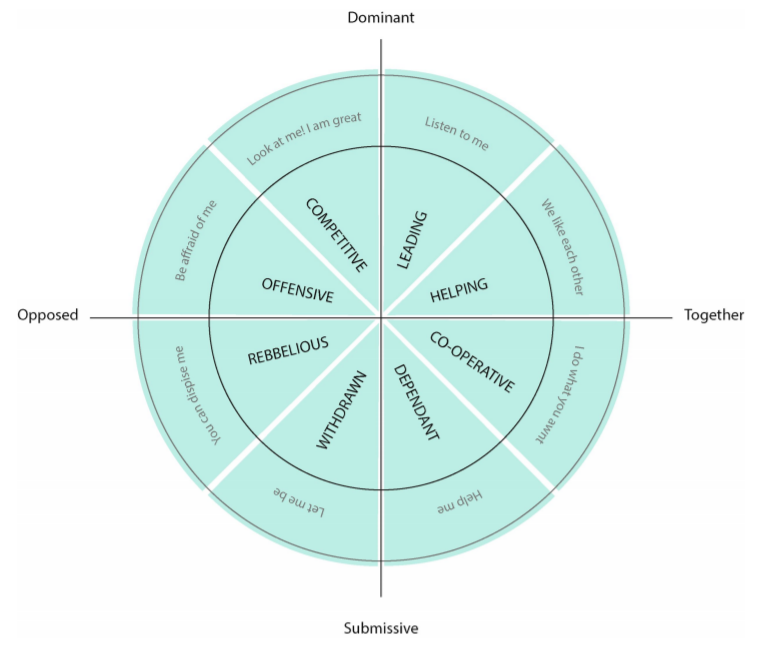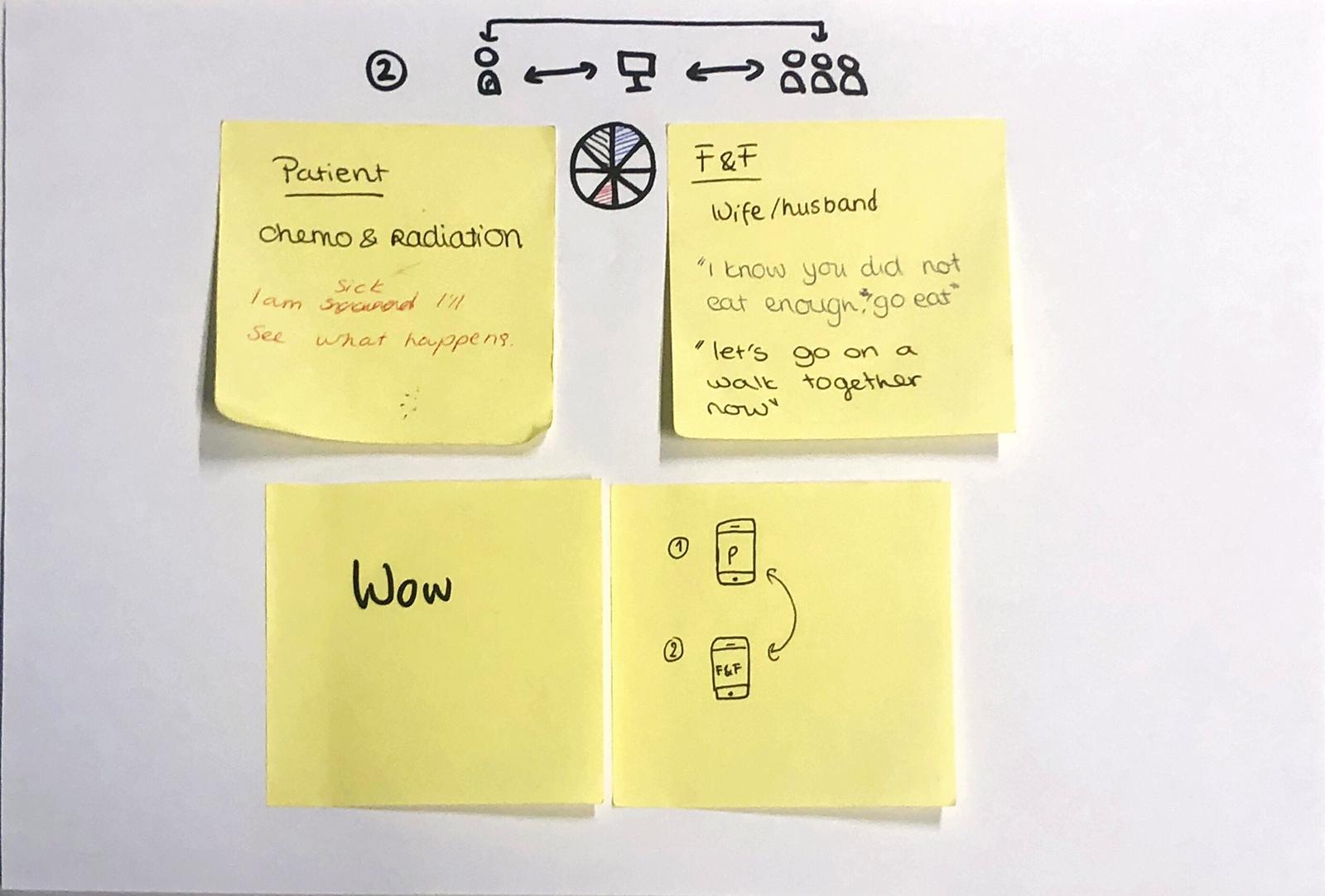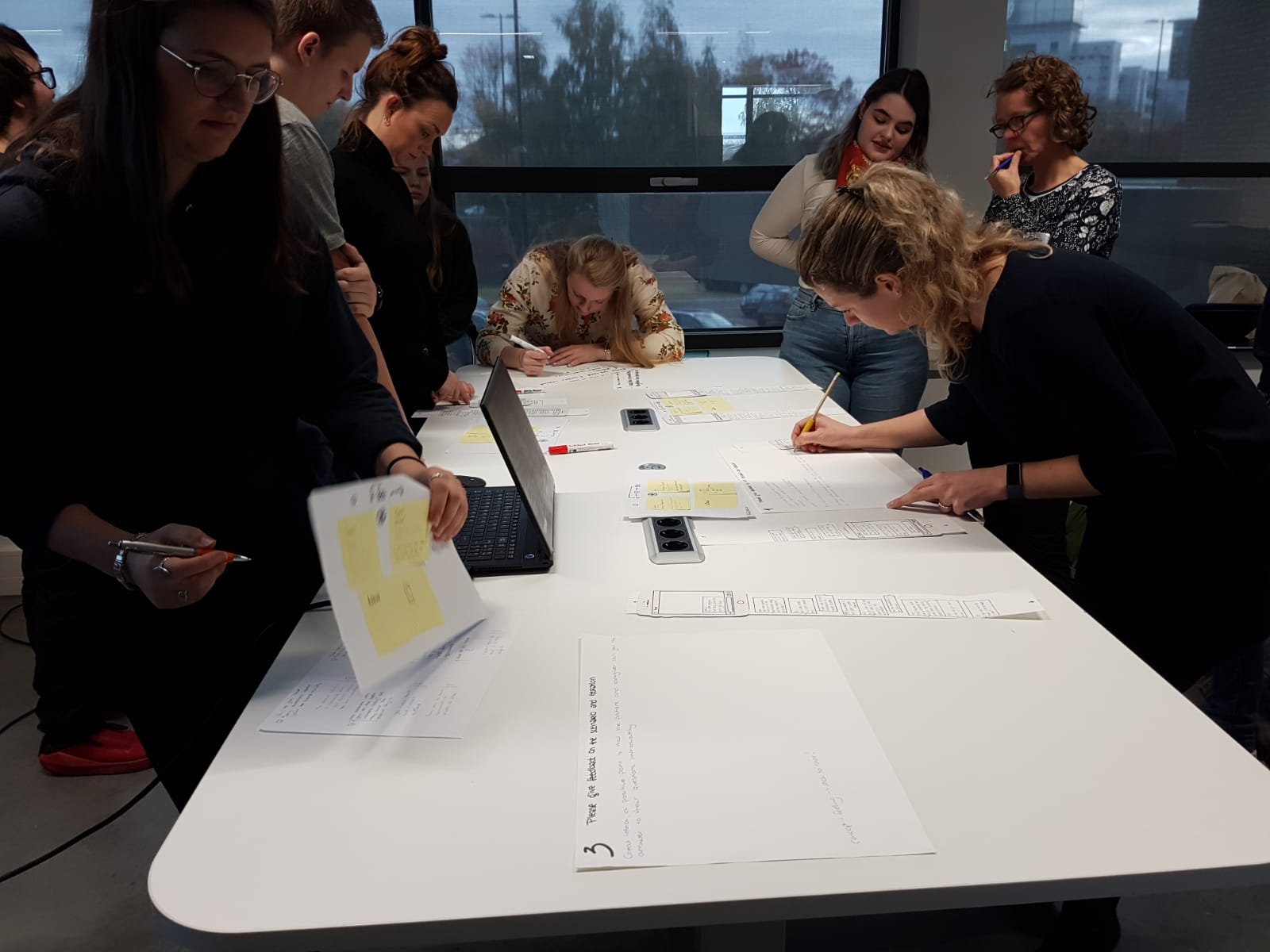Sprint 1: Creative concepting
-
An ideation session based on HMW's and User Journey
Start sprint 1There are three self-management aspects we'd looked into, which were informational-, motivational- and emotional support. We assumed family and friends are the best way to provide motivational and emotional support. I highly recommand doing ideation sessions, because it resulted in three concepts we can work with:
1. Chatbot as mediator
Providing the patient, family and friends a mediator to help, coach and motivate the users and provides instructions on how to give support.2. Sharing platform
Expanding the conversational agent with knowledge from patients experiences (including the PIM and specialists) to guide patients and to learn from them.3. "I'm fine"-concept
Is it possible for a conversational agent to find the patient's needs when reading between the lines. When asking someone "How are you?", they can quickly reply "I'm fine", but are they truly fine? -
We finally got the opportunity to intereview specialist!
Throughout OctoberThere were miscommunications between the students and client, which delayed the opportunity to interview specialists from the hospital. That's why we couldn't do interviews at sprint 0. Luckily, we did research that made us understand medical terms, general procedures, etc. So we immediately recognised what the specialists explained.
We recorded the (Dutch) interviews with two nurse specialists, the surgeon, the dietitian and the physical therapist and transcribed it in English. They gave practical insights on how they experience the trajectory for themselves and their patients.
It felt inefficient to rewrite recordings, but now non-Dutch speakers can read what the specialist said. I'll take that experience with me at my next multi-languaged project.
-
There were more models and methods to use for the concept and behaviour of the application
Right after the interviewsAfter the interviews, we confirmed some assumptions about miscommunications and involving friends and family into the process. That's why we chose to continue working towards the mediation agent.
I found a model, from my major at Avans, that explains some the basics of mediation. It's called the Rose of Leary. We used it to determine behaviour at scenario conflicts between patients and family members during the care path. Finally, we found out that the conversational agent can have four behaviours towards patients and friends and family: help reflecting a situation, mediate a conflict, inform users and react to a situation.
We looked into all mediation classes I took at my Avans major. Like "Schultz von Thun"-model, tips for giving feedback and the mediation phases.
-
What's Up- / Support-bot? That's our conversational agent SuP!
Demo 2Our general concept description stated: "Using the patients’ experiences, the solution we thought of is going to help Family and Friends with finding the right way to keep motivating the patient in their self-care", which means that we want to use patients' experiences, family and friends to improve self-management of the patient. This demo we made low fidelity prototypes (with paper) to let the audience interact with our mediation agent.
We presented our project progress and ideas first. Then we set up our prototype by having four behavioural examples (more like scenarios). Participants wrote down their thoughts about the prototype on paper. It was a thinking aloud test to receive feedback about our concept as well. This method of interacting and writing down opinions worked like a charm! We received constructive feedback to put into our next iteration. I would definitely like to do this way of testing again.
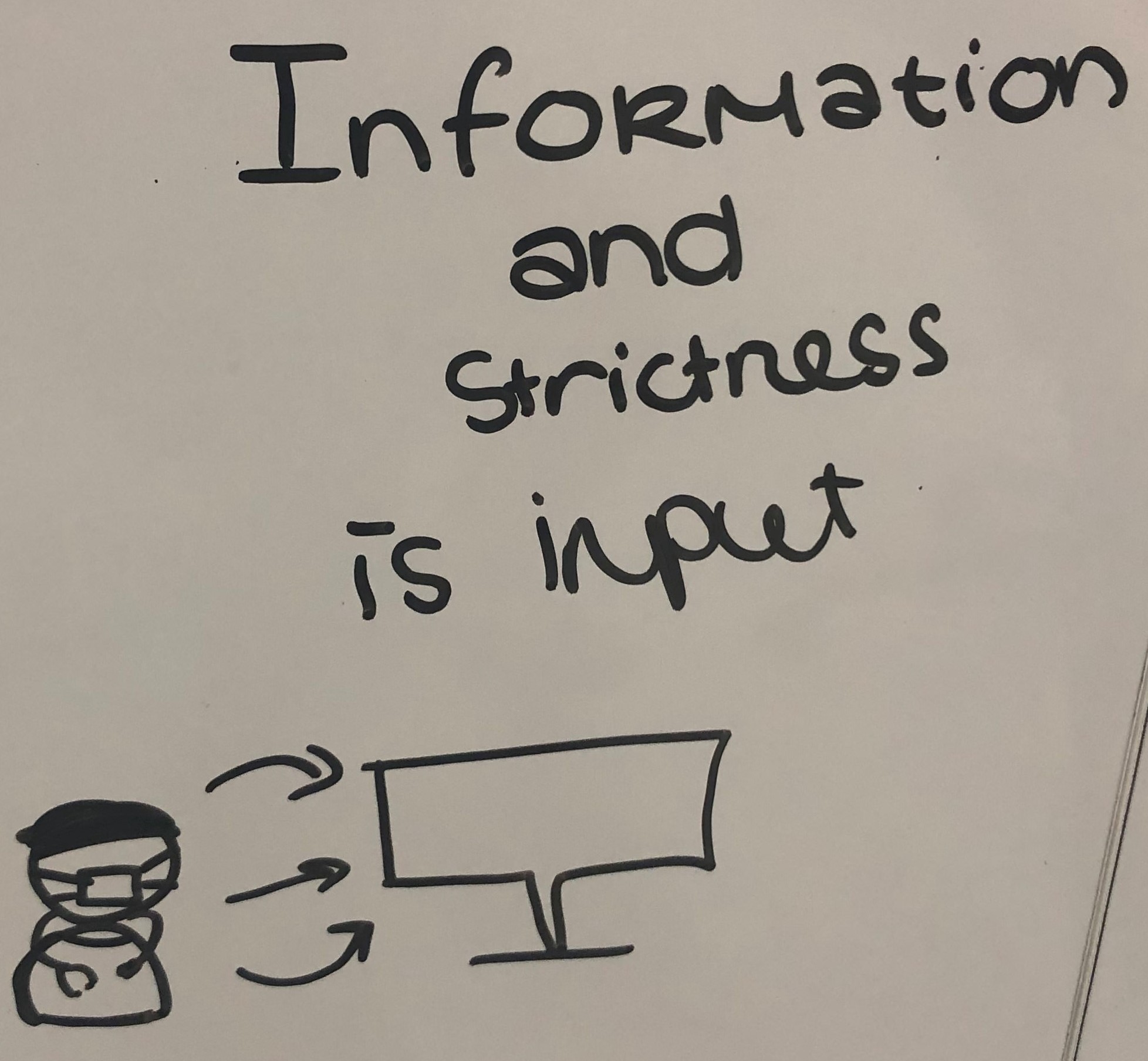
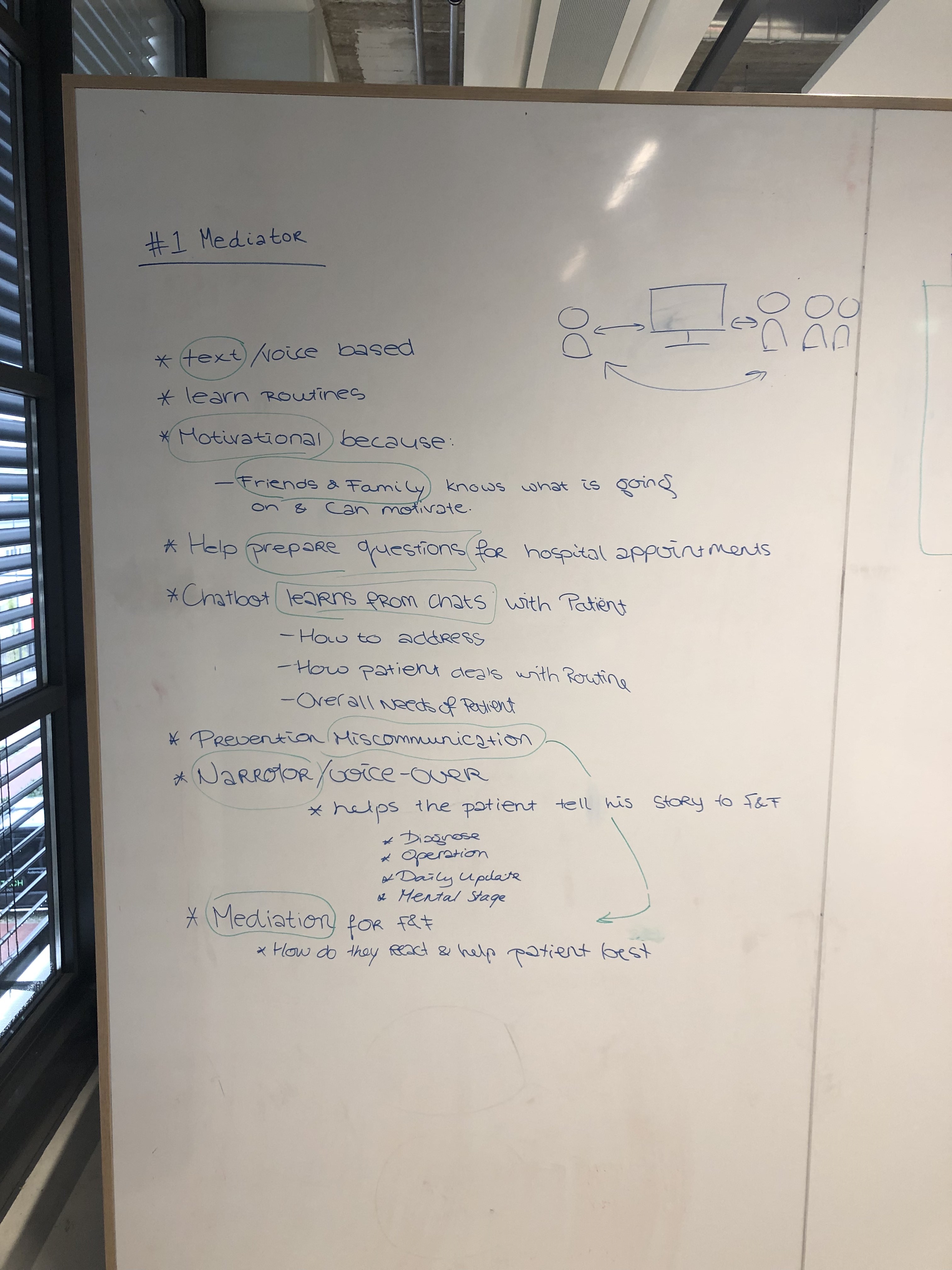
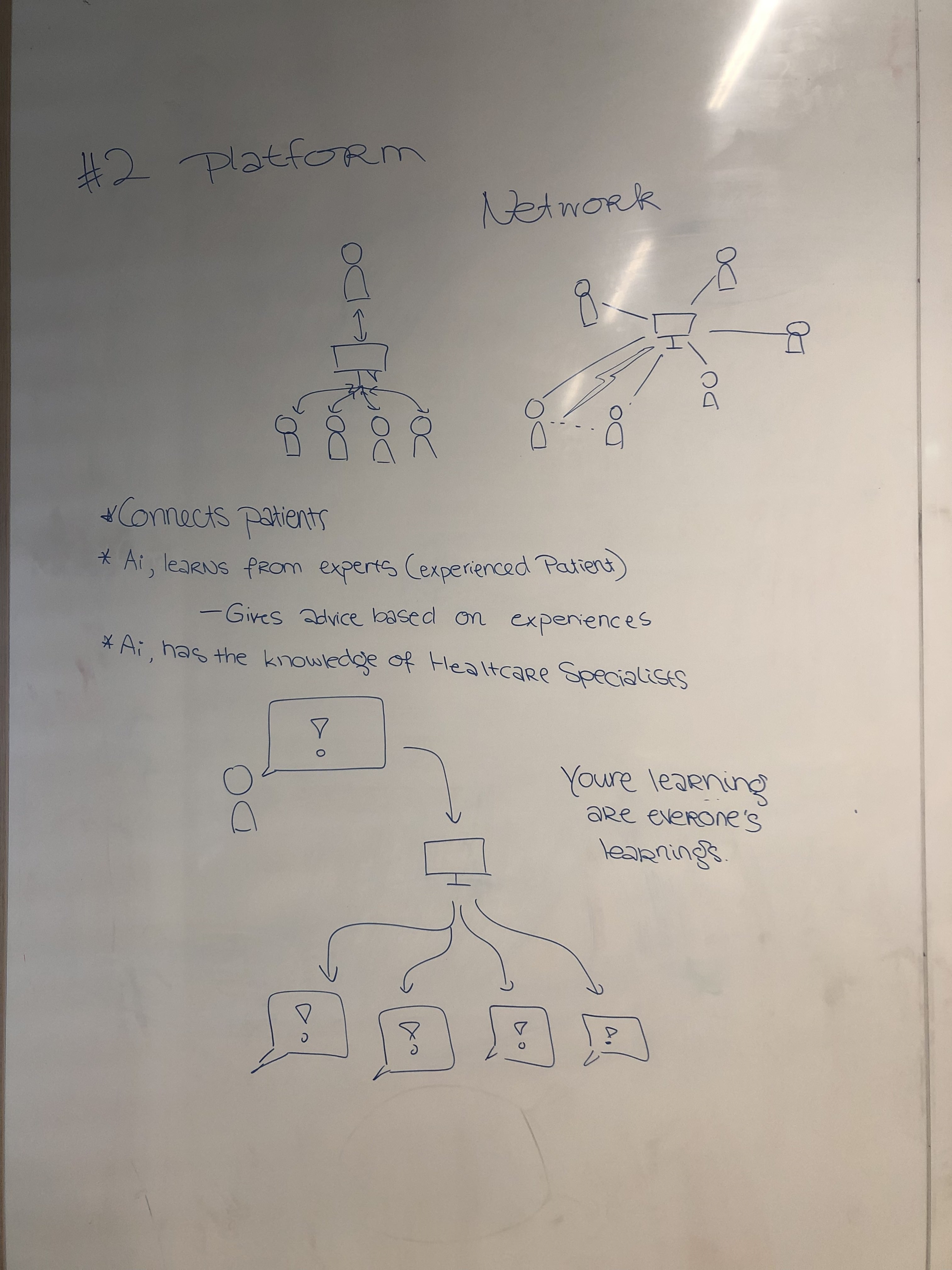
 concept.jpg)
